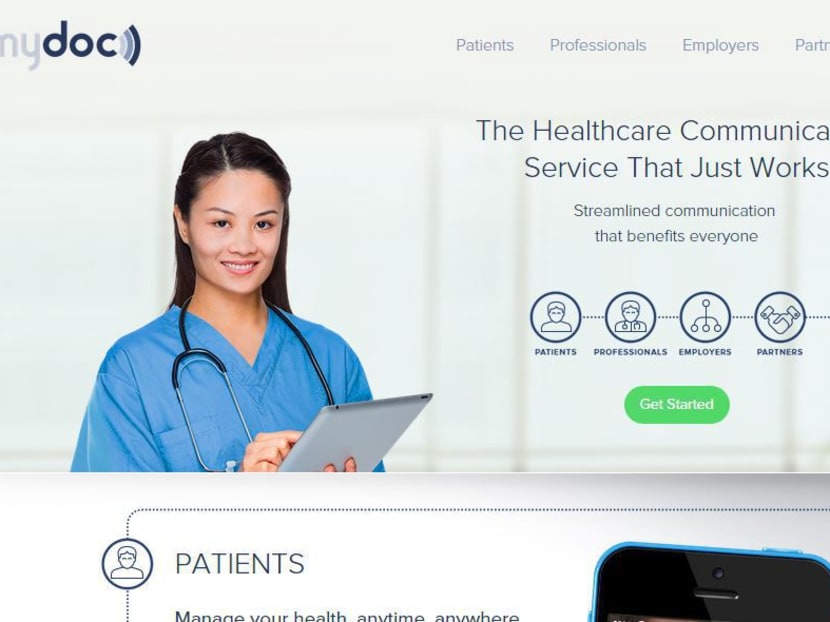Boosting follow-throughs of health screenings
SINGAPORE — While more are going for health screenings, few are actually following up on the results of their checks, partly because long waiting lines at clinics are holding people back from seeking advice from doctors.
SINGAPORE — While more people are going for health screenings, few are following up on the results of their checks, partly because the long lines at clinics are holding them back from seeking advice from doctors.
But a healthcare platform allows virtual consultations via videoconferencing and instant messaging is changing that.
Since they registered with the MyDoc platform, doctors have seen a quadrupling in the number of queries on health-screening results.
“People are going through the hassle of the needle-prick, but they are not doing anything with this information ... The actual follow-throughs for the screenings tend to be quite low,” said Dr Snehal Patel, one of MyDoc’s co-founders. Early intervention of problems highlighted in health screenings can deal with potential chronic conditions and lower healthcare costs in the long run, he added.
MyDoc, launched six months ago, now has about 50 general practitioner (GP) clinics, or about 200 to 300 physicians registered. Companies such as Parkway Shenton and Guardian pharmacies have also adopted the platform.
Besides letting patients consult with doctors virtually, the Web- and mobile-based platform allows for secure sharing of medical reports and direct referrals to specialists, where necessary. Medical practitioners can also share patients’ health records.
The platform comes amid Singapore’s efforts to strengthen its digital infrastructure to become a Smart Nation. The use of big data, for instance, has been changing the healthcare scene in Singapore, as hospitals make improvements in their operations by crunching and analysing data.
Dr Vas Metupalle, who co-founded MyDoc, said the idea came when he realised “there was very little communication between outpatient clinics — especially the primary care clinics — and the hospitals”.
Doctors registered with the platform said it also helps them deal with the deluge of queries coming from various avenues, such as email and telephone calls.
Dr S S Sathappan, an orthopaedic senior consultant, said that after using MyDoc for two months, about 30 to 40 per cent of his younger patients below age 50 are now communicating with him using the platform.
Virtual consultation also helps to cut down unnecessary face-to-face meetings, helping to save patients time and money, he added. For instance, Dr Sathappan said he hopes to meet some patients in person for follow-ups after surgeries only twice, instead of four times currently.
Guardian’s health and beauty digital and e-commerce manager Park Joo-young said that it is using the platform to target “time-pressed Singaporeans”, who can schedule online appointments with doctors or pharmacists over an online chat or video call.
One of the doctors working with Guardian, Dr Lai Junxu, said the users are typically the more tech-savvy ones and aged between 20 and 50. Some patients see the platform as an “upgrade” from communicating via WhatsApp, he said.
Dr Lai added that for home care patients, nurses can also send information on a patient’s condition in between scheduled visits so doctors can review the case remotely.
When marketing and circulation manager Panir Chelvam’s mother experienced pain in her right leg, he did not know which doctor to approach. The platform helped him identify which doctor was the right person to consult, “rather than going there only to realise it’s a different specialist she needs to see”, said the 51-year-old.







